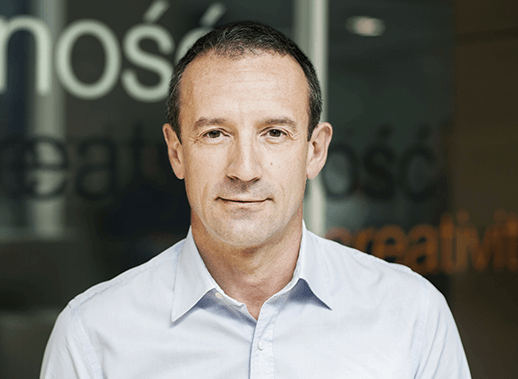When I arrived in Poland, close to two years ago, I endorsed all of this company’s strategic directions.
These were investments in connectivity, convergence and increased efficiency. While these key
directions are largely unchanged in the new strategy, what we would like to mainly improve is
execution. We need to do all these things better, with clearer focus, more speed and more agility.
My ambition is to introduce greater determination and motivation in achieving our goals.
Speaking about motivation, in order to further motivate our top managers to reach long-term goals,
and to link their objectives more directly with the interests of our shareholders, we have introduced,
for the first time in the history of Orange Polska, an incentive plan based mostly on Orange
Polska’s stock price performance. More than 90% of eligible managers have joined this voluntary
programme, a clear indicator of their confidence in Orange.one.
In my opinion, both the macro environment in Poland and the dynamics of the telecom market should
be beneficial for our plans. Poland’s economic situation is very benign, with rapid growth of
private consumption and disposable income. As such, we have grounds to assume that the Polish
market may head towards some kind of recovery.
I believe that our 2017 results confirm that our strategy is working and our ambitions are realistic.
We are now much more balanced between volume and value, we are much more focused in commercial
strategy, and our customer proposals are driven by simplicity and consistency.



